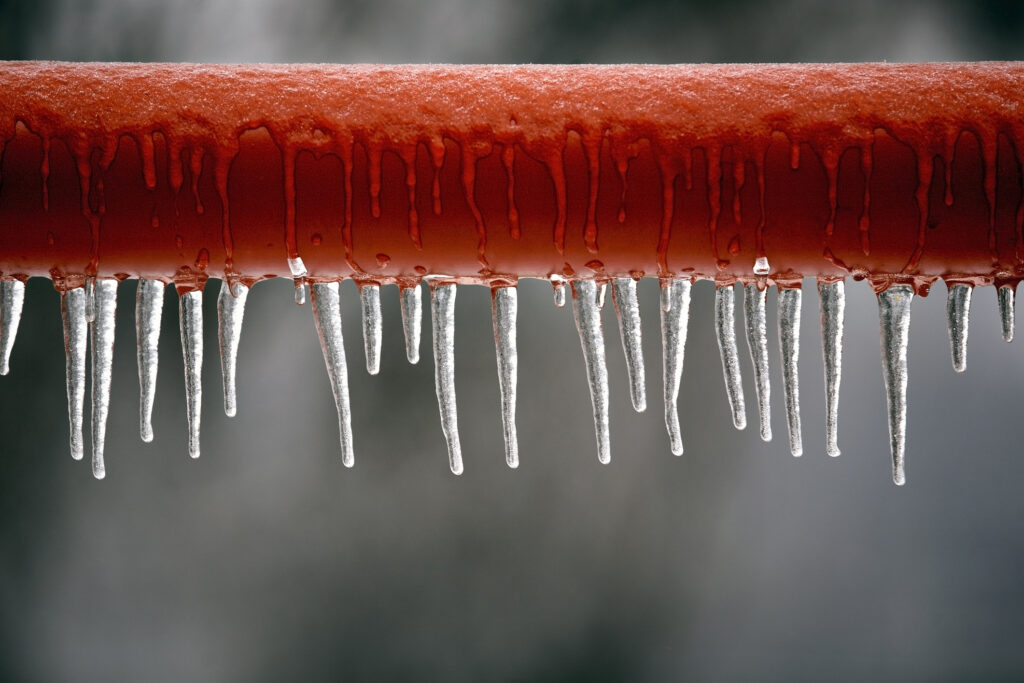Dealing With Frozen Water Pipes
With February 2021 being one of the coldest winters in North Texas in recent memory, we’re all very much aware that the risk of pipes freezing and bursting is real. Pipes that freeze and then defrost are more likely to burst, resulting in water leaks and floods that damage the structure of your home as well as your valuables. One way to avoid this disaster is to educate yourself so that you are prepared in the event of a plumbing emergency.

Why pipes burst when it’s cold
While it may seem counter intuitive, Pipes generally don’t burst due to ice expanding inside the pipes. Without getting too technical, when water freezes inside pipes, the water molecules expand. The ice then expands and pushes the water toward the faucet, creating significant pressure between the ice blockage inside the pipe and the faucet. The pipe eventually bursts due to the pressure buildup. The rupture usually happens in a section of the pipe with little to no ice.
Preventing freezing water pipes
It’s not too late to take measures to prevent your pipes from freezing and bursting. Your best bet is to insulate the pipe and keep the surrounding area warm using building insulation. Any pipes that are in an exterior wall should be insulated. For example, if you have a north-facing kitchen, and your sink is against the wall, you’ll want to get the hot and cold water lines insulated to help prevent pipes from freezing.
What to do if a water pipe becomes frozen
If you suspect you have a frozen pipe, don’t panic, but do take action. Call your local plumber, Staggs Plumbing immediately.
Do not attempt to thaw a frozen pipe with an open flame. This process can be dangerous and inefficient.
You may be able to thaw the pipe with a hand-held hair dryer.
- Open the faucet
- Apply heat to the pipe slowly, beginning close to the faucet end and moving back and forth around the frozen area.
Make sure you are not standing in water. Doing so while working with electrical items can cause electrocution.
What to do if a water pipe bursts
In the case of a burst pipe, do the following:
- Turn off the water main shut-off valve. It is usually located by the road at the water meter or where the main line enters your home.
- Leave the faucets open until one of our plumbers has had a chance to repair the damage.
- If you have a private well, use the shut off located near or on the well holding tank.
- If there is flooding in your home, please check there are no electrical cords or outlets submerged before stepping into the standing water. If in doubt, wait for our plumber or call the local electricity provider for assistance of the local city department.
Note: If you don’t know where your shut off valves are and your pipes have not burst, find them now to save time in the event of an emergency.


